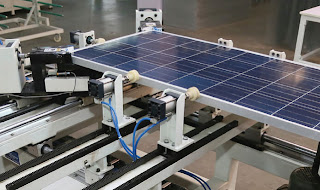How is Renewable Energy Shaping the Future of Air Conditioning in Lebanon?
The Need for Sustainable Solutions
Lebanon’s hot and humid summers put a significant strain on traditional cooling systems. Many homes and businesses rely heavily on conventional air conditioning, which often consumes excessive amounts of electricity. This reliance has led to higher energy costs and increased carbon emissions. As a result, the urgency for sustainable alternatives has never been more pressing. The integration of renewable energy into cooling technologies presents a viable solution to address these challenges.
Renewable Energy and Its Benefits
Renewable energy sources, such as solar and wind, are increasingly being harnessed to power air conditioning systems in Lebanon. By utilizing these resources, individuals and businesses can reduce their dependency on fossil fuels, leading to a substantial decrease in greenhouse gas emissions. Moreover, solar panels can be installed on rooftops, allowing homeowners to generate their own electricity for cooling systems. This not only lowers energy costs but also contributes to a more resilient energy infrastructure, essential for a country facing periodic power shortages.
Ammonia Cooling Systems: A Sustainable Choice
One of the most promising developments in cooling technology is the rise of ammonia cooling systems. These systems offer an environmentally friendly alternative to traditional refrigerants, which often contribute to ozone depletion and global warming. Ammonia, being a natural refrigerant, has a lower environmental impact and is highly efficient. Businesses looking to adopt sustainable cooling solutions can benefit significantly from this technology. By incorporating ammonia cooling systems, companies can achieve effective temperature control while minimizing their carbon footprint, making it a smart choice for the future.
The Role of Innovation
Innovation plays a critical role in the evolution of air conditioning solutions in Lebanon. Companies are increasingly focusing on developing technologies that maximize energy efficiency while ensuring optimal performance. This includes advancements in smart thermostats, energy management systems, and more efficient cooling designs. By integrating these technologies with energy sources, Lebanon can lead the way in sustainable cooling solutions, providing a blueprint for other countries to follow.
Consumer Awareness and Adoption
As awareness of the benefits of renewable energy grows, so does consumer interest in sustainable air conditioning options. Homeowners and businesses are more informed about their choices and are actively seeking solutions that align with their environmental values. Educational campaigns highlighting the advantages of energy and cooling systems can further accelerate this trend. By empowering consumers with knowledge, the shift toward sustainable cooling solutions can be significantly enhanced.
Conclusion
The future of air conditioning in Lebanon is inextricably linked to the adoption of renewable energy. By embracing innovative technologies and sustainable practices, the region can create a more efficient and environmentally friendly approach to cooling. As Lebanon moves forward, the integration of renewable energy sources and cooling systems will play a pivotal role in shaping a sustainable future, ensuring that everyone can enjoy a comfortable climate without compromising the planet.



Comments
Post a Comment